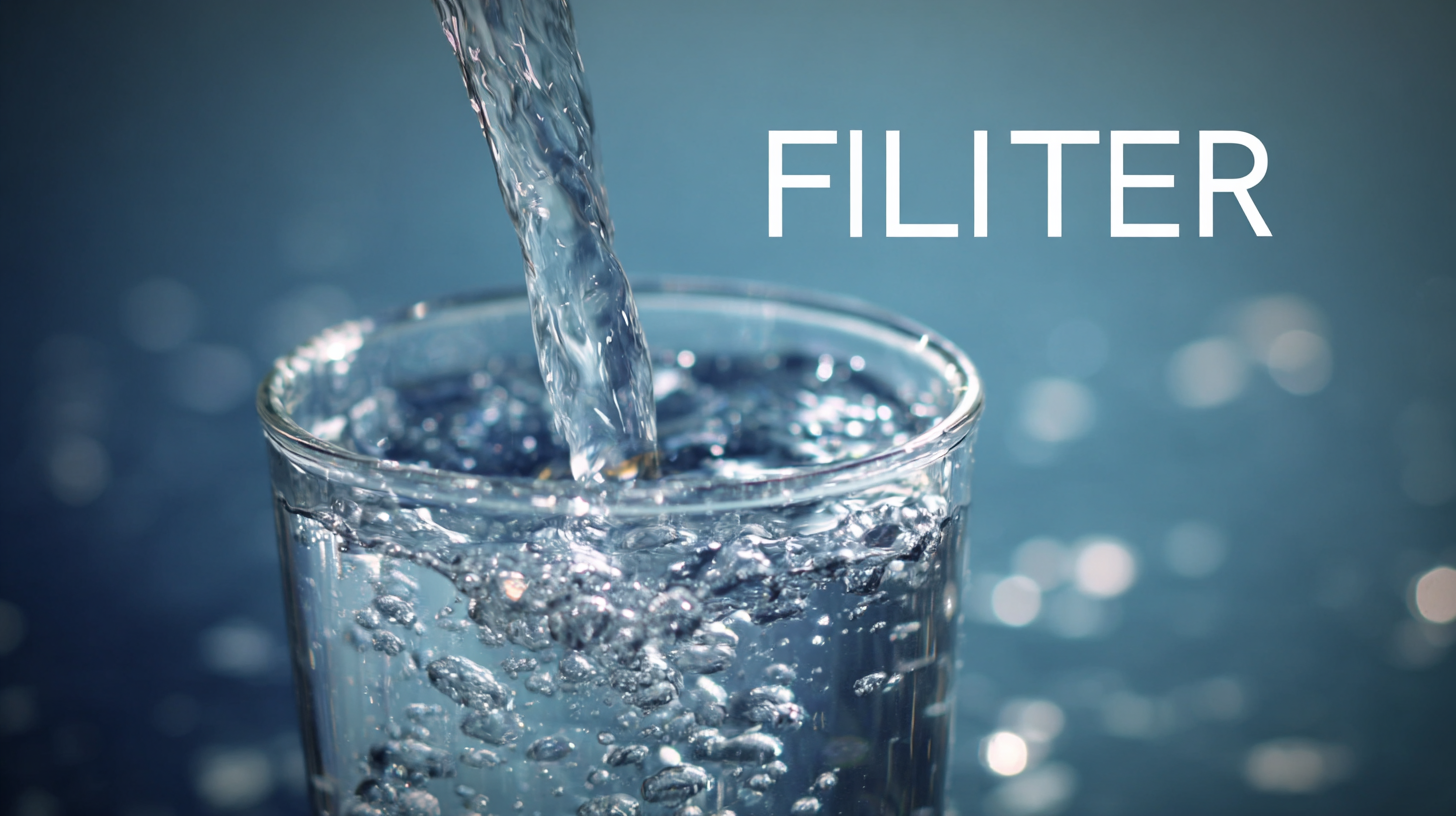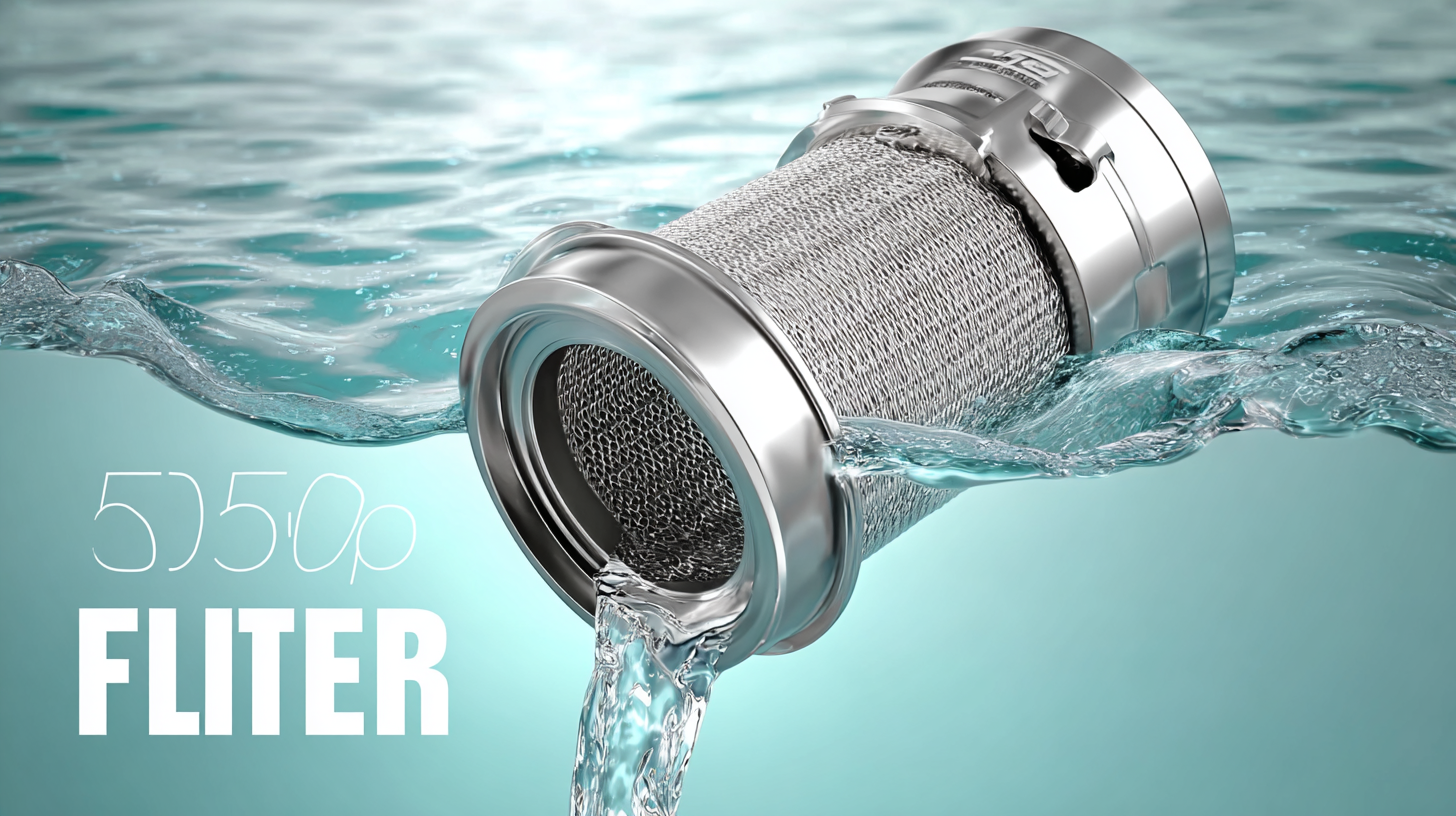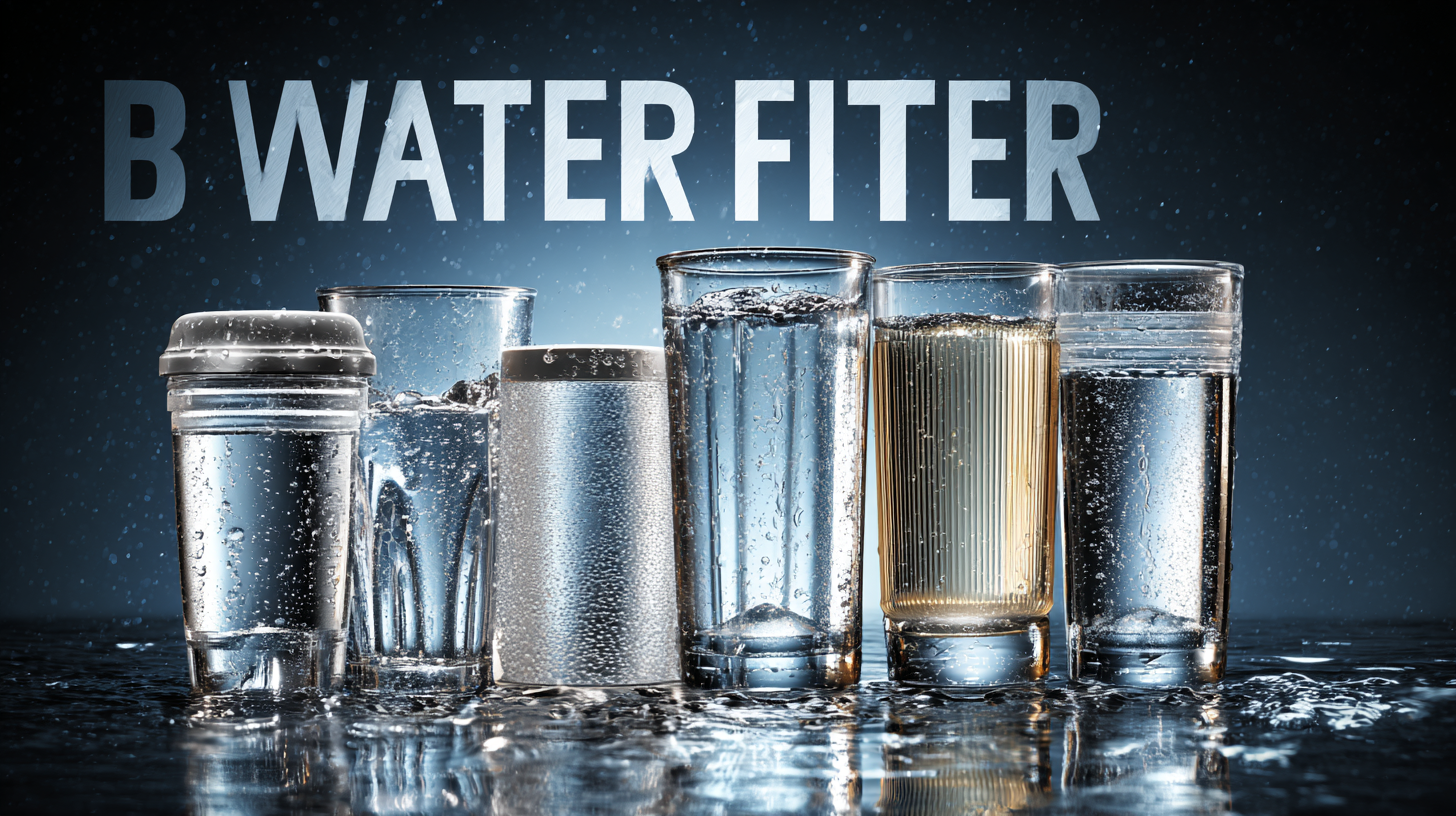
Top Strategies for Choosing the Best Water Filter for Your Home
In an age where health and wellness have taken center stage, the quest for clean and safe drinking water becomes paramount. A good water filter not only ensures the purity of your drinking water but also reflects the quality and standards upheld in its manufacturing process. This is especially true when considering products from regions known for their craftsmanship, like China, where the phrase "中国制造,以品质赢得世界尊重" encapsulates a commitment to quality that has earned global respect. Choosing the right water filter for your home involves understanding different filtration technologies, assessing your water quality needs, and considering factors such as maintenance and cost. In this blog, we will explore top strategies for selecting the best water filter that aligns perfectly with your requirements, ensuring that you invest in a product that provides clean, safe, and refreshing water for you and your family.

Understanding Your Water Quality: Key Factors to Consider
When selecting the ideal water filter for your home, understanding your water quality is paramount. According to a study by the Environmental Protection Agency (EPA), nearly 15% of Americans rely on private wells for their drinking water, which can often be contaminated with harmful bacteria, nitrates, and heavy metals. Testing your water regularly can help you identify specific contaminants and select a filtration system that effectively targets those issues. For example, if your water test reveals high levels of lead, it’s crucial to choose a filter that meets the NSF/ANSI 53 standard, which ensures reduction of lead to safe levels.

Moreover, the source of your water considerably influences the type of filter you should consider. Municipal water supplies, while treated, can still carry trace amounts of chlorine, disinfection byproducts, and other contaminants. A report from the World Health Organization (WHO) suggests that activated carbon filters are effective in removing chlorine and improving taste. Understanding these key factors—contaminants present in your water and the filtration standards necessary to address them—will guide you in choosing the best water filter for your home, ensuring access to safe and clean drinking water.
Types of Water Filters: Which One Suits Your Needs?
When it comes to choosing the best water filter for your home, understanding the various types available is crucial to meet your specific needs. According to a recent report from the Water Quality Association, over 70% of U.S. households are concerned about the quality of their drinking water, which has propelled the demand for effective filtration solutions. The most common types of water filters include activated carbon, reverse osmosis, and UV filters, each catering to different contaminants and preferences.
Activated carbon filters are popular for their ability to improve taste and remove chlorine, with studies showing they can reduce common contaminants by up to 99%. If you are concerned about heavy metals, reverse osmosis systems are highly effective, as they can remove up to 95% of these impurities. The EPA recommends these systems for homes with significant lead or arsenic levels. Meanwhile, UV filters are excellent for disinfecting water, eliminating up to 99.99% of bacteria and viruses, making them ideal for those relying on well water. Each type of water filter has distinct advantages, and identifying your primary concerns—whether taste, contaminants, or pathogens—will guide you to the best solution for your household.
Evaluating Filter Performance: What to Look For
When selecting a water filter for your home, evaluating filter performance is crucial to ensure that you are making a wise investment. The first aspect to consider is the filter's ability to remove specific contaminants. Different filters target various substances, such as chlorine, lead, and microbial cysts. Look for certification from organizations like NSF International, which verifies that the filter meets safety and performance standards. A well-documented filter performance can provide peace of mind regarding the quality of the water you and your family consume.
Another important factor to evaluate is the filter’s flow rate and capacity. A filter that operates efficiently without compromising the water pressure is essential for daily use. Additionally, consider how often the filter needs replacement, as a filter with a longer lifespan may save you time and money in the long run. Research the maintenance requirements and associated costs to find a filter that fits seamlessly into your lifestyle while ensuring clean, safe drinking water for your home. By taking into account these performance aspects, you can make a more informed choice that aligns with your family's needs.

Budgeting for a Water Filter: Balancing Cost and Quality
When budgeting for a water filter, it is essential to strike a balance between cost and quality. Many consumers may be tempted to go for the cheapest option available, but this often leads to regrettable compromises in performance and water purity. Investing in a more reliable filter can ensure that harmful contaminants are effectively removed, which is crucial for the health and well-being of your family. Start by determining your specific needs—consider factors like the type of contaminants present in your water supply, the filter’s capacity, and the level of maintenance required.
Quality water filters often come with varying price points, so it’s worthwhile to research and compare different models that fit your budget. Look for filters with strong reviews and certifications from credible organizations, as these can indicate a product’s reliability. Additionally, factor in long-term costs, such as replacement filters and maintenance fees, to get a true picture of your investment. A slightly higher upfront cost can lead to better filtration performance and durability, ultimately saving you money and ensuring safe drinking water.
Top Strategies for Choosing the Best Water Filter for Your Home
| Filter Type | Cost (USD) | Lifespan (Months) | Filtration Capability | Maintenance Cost (Yearly) |
|---|---|---|---|---|
| Activated Carbon | $30 | 6 | Chlorine, Odors, Sediment | $15 |
| Reverse Osmosis | $200 | 24 | Heavy Metals, Fluoride, Bacteria | $50 |
| Ultraviolet (UV) | $150 | 12 | Bacteria, Viruses | $20 |
| Pitcher Filter | $20 | 2 | Chlorine, Heavy Metals | $10 |
| Whole House Filter | $800 | 60 | Sediment, Chlorine, Odors | $100 |
Maintenance Tips for Longevity: Keeping Your Filter Effective
When it comes to maintaining the effectiveness of your water filter, regular upkeep is key to maximizing its lifespan and efficiency. Just as you would care for a high-mileage vehicle, such as making crucial adjustments to prevent breakdowns, your water filter also requires attention. This includes routine inspections of filter components, ensuring there are no leaks or damage, and replacing cartridges as recommended by the manufacturer. Keeping the filter clean not only helps in maintaining water quality but also prevents any build-up that could impede performance.
Additionally, consider the environment in which your filter operates. Just like protecting your hybrid car during harsh winters, you should also shield your water filter from extreme conditions. Avoid placing it in direct sunlight or damp areas, which can negatively impact its longevity. Regularly flushing the system according to the guidelines can also enhance its efficiency. By implementing these maintenance strategies, you can ensure your water filter continues to provide clean, safe drinking water for years to come.
Top Strategies for Choosing the Best Water Filter for Your Home
This chart illustrates key performance metrics to consider when choosing a water filter for your home. The filtration capacity is measured in gallons, replacement frequency is indicated in months, cost is represented in US dollars, and effectiveness measures the removal rate of contaminants in percentage.
